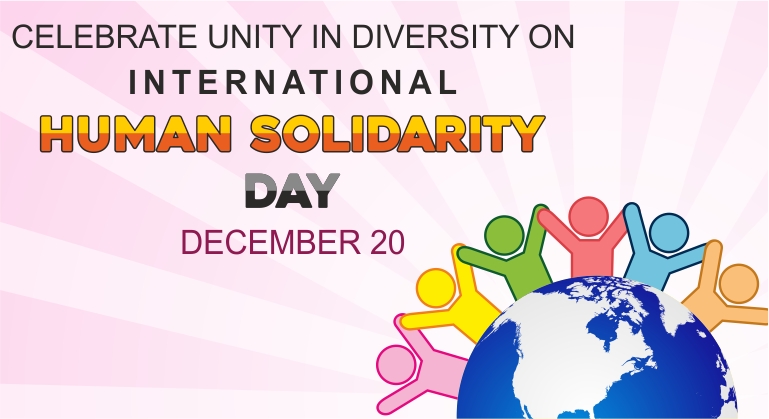Do entrepreneurs voice solidarity with the consumers? Sheatwork takes note of this on International Human Solidarity Day that falls on December 20
International Human Solidarity Day is observed on December 20. It is a day to celebrate our unity in diversity; to remind governments to respect their commitments to international agreements; to raise public awareness of the importance of solidarity; to encourage debate on the ways to promote solidarity for the achievement of the Sustainable Development Goals including poverty eradication and most importantly, a day of action to encourage new initiatives for poverty eradication.
The new Sustainable Development Goals (SDGs) agenda is focused on people & planet, underpinned by human rights and supported by a global partnership determined to lift people out of poverty, hunger and disease; and thus is built on a foundation of global cooperation and solidarity.
‘Solidarity’ is identified as one of the fundamental values of international relations in the 21st Century, in the Millennium Declaration. It implies that those who either suffer or benefit least, deserve help from those who benefit most. Consequently, in the context of globalization and the challenge of growing inequality, strengthening of international solidarity is indispensable.
Therefore, the UN General Assembly, proclaimed December 20 as International Human Solidarity Day; for they were convinced that the promotion of the culture of solidarity and the spirit of sharing is important for combating poverty. Through initiatives such as the establishment of the World Solidarity Fund to eradicate poverty and the proclamation of International Human Solidarity Day, the concept of solidarity was promoted as crucial in the fight against poverty and in the involvement of all relevant stakeholders.
The concept of solidarity has defined the work of the United Nations since its inception. The UN was founded on the basic premise of unity and harmony among its members, expressed in the concept of collective security that relies on the solidarity of its members to unite “to maintain international peace and security.” It is in the spirit of solidarity that the Organization relies on “cooperation in solving international problems of an economic, social, cultural or humanitarian character” as well.
When entrepreneurs can demonstrate an idea’s potential across multiple strategies, validating the strength of the idea itself, they appear more confident and persuasive to their target audience – investors, employees, and partners. In short, when they demonstrate their solidarity to their TG, they become really strong.
So, entrepreneurs can develop a strategy that allows them to approach the critical choices they face in the market. They can generate some market strategies, so that they can move from an idea to the launch stage, in a unique way – to create and capture value.
Entrepreneurs may feel overwhelmed by the vast number of choices they face. Should they collaborate or compete? Working with established players provides access to resources that may enable the start-up to enter a larger and better-established market more quickly. Competing against established players in an industry means the start-up has more freedom to build the value chain it envisions, to work with customers that the incumbents may have overlooked, and to bring innovations to market that enhance value for customers.
Whatever, be the case, voicing solidarity with their circle of customers will most definitely prove to enhance their business and hit success.










